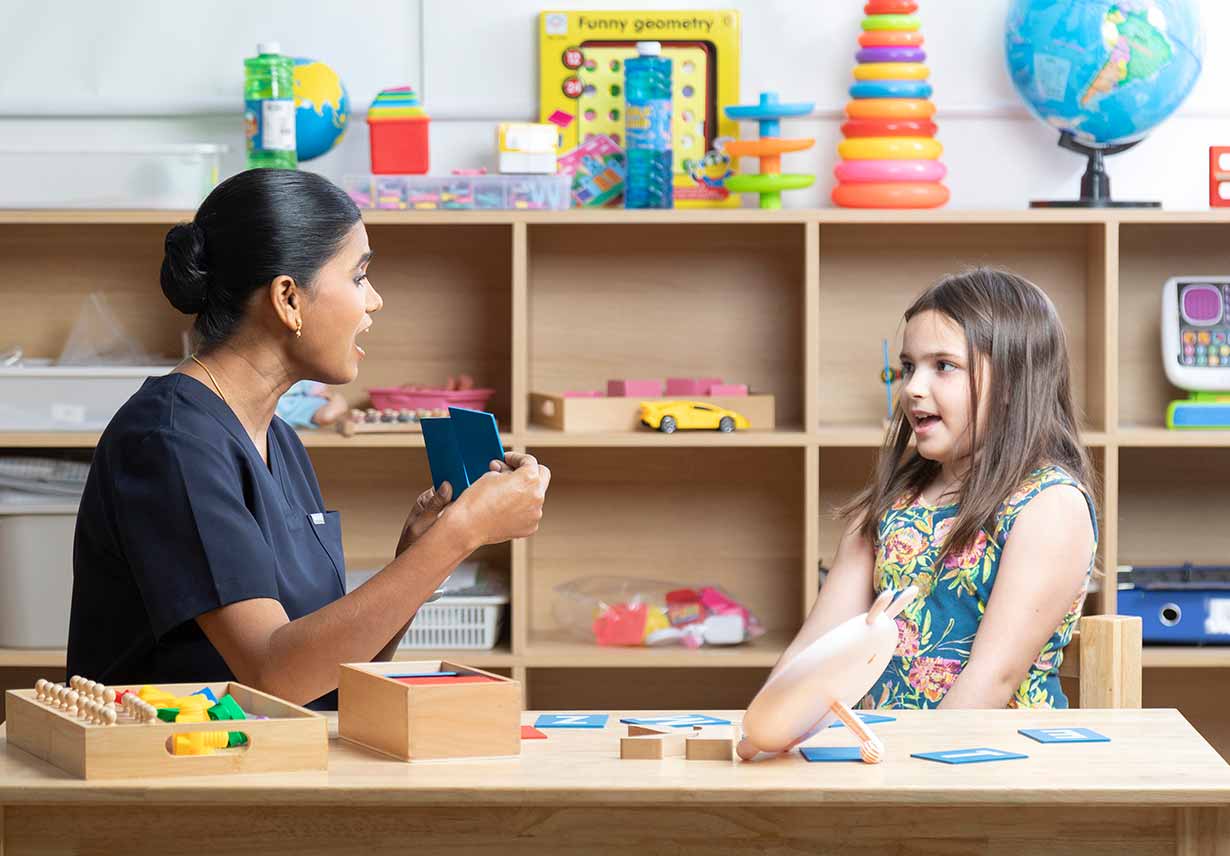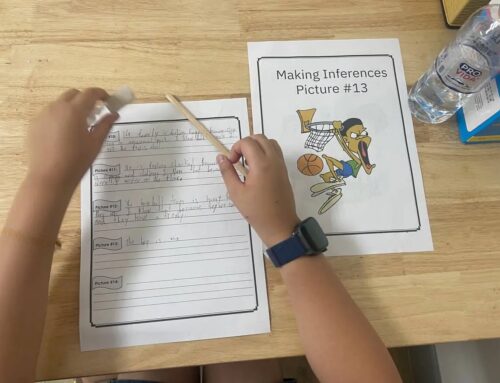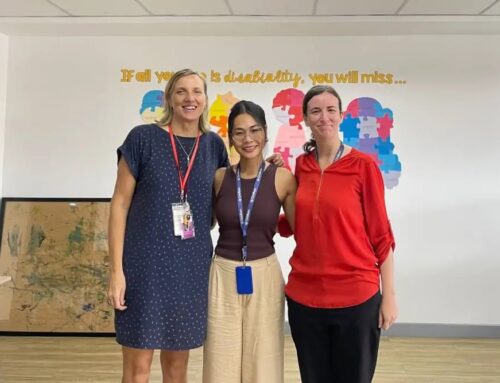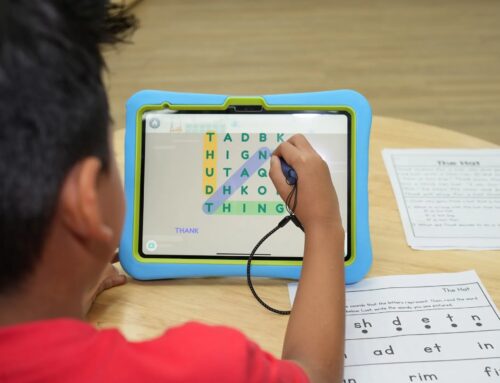In Cambodia, parents often wonder whether their child needs speech therapy or tutoring when facing communication or learning challenges. Although these two forms of support may seem similar, they serve very different purposes. Understanding the difference between speech therapy and tutoring helps families choose the right intervention for their child’s success — both academically and developmentally.
At OrbRom Center in Phnom Penh, many parents initially come seeking help with “speech” or “school performance,” unsure which professional can best support their child. Let’s break down how speech therapy and tutoring differ, where they overlap, and how to identify which your child might need.
What Is Speech Therapy?
Speech therapy is a specialized service that focuses on improving a person’s ability to communicate effectively. Conducted by a Speech-Language Pathologist (SLP), it addresses a wide range of communication challenges — from pronunciation issues and language delays to fluency, social communication, and voice disorders.
In Cambodia, centers like OrbRom Center’s Speech Therapy Department provide tailored sessions that help children understand and use language to express themselves clearly. The therapy is grounded in evidence-based techniques that support children who may have developmental disorders such as autism, speech delay, stuttering, or language impairment.
Common focus areas in speech therapy include:
-
Articulation and pronunciation: Helping children produce sounds correctly.
-
Language development: Expanding vocabulary and sentence structure.
-
Social communication: Learning how to take turns, start conversations, and interpret social cues.
-
Fluency and voice: Managing stuttering or voice tone difficulties.
Each session is individualized, often using play-based or functional activities. The goal is to build communication competence, not just improve grades.
For more information on how this works, see What Is Speech Therapy? or Speech Therapy in Phnom Penh.
What Is Tutoring?
Tutoring, on the other hand, focuses on improving academic performance. A tutor helps students master specific school subjects such as reading, writing, or mathematics. Tutoring is typically short-term, goal-oriented, and linked directly to the school curriculum.
Tutors provide support for children who already have the foundational communication and learning skills but need help understanding academic content, completing homework, or preparing for exams.
Tutoring often focuses on:
-
Strengthening subject knowledge (e.g., English, math, or science)
-
Improving study habits and organization
-
Building academic confidence
-
Filling gaps in classroom learning
Unlike speech therapy, tutoring is not diagnostic or therapeutic. It does not address underlying communication or developmental differences.
Key Differences Between Speech Therapy and Tutoring
1. Purpose and Goals
-
Speech Therapy: Improves communication, speech, and language development. It aims to enhance how a child understands and expresses language.
-
Tutoring: Focuses on academic performance and subject mastery. The goal is to help students perform better in school subjects.
2. Who Provides the Support
-
Speech Therapy: Conducted by certified Speech-Language Pathologists trained in child development, language acquisition, and communication disorders.
-
Tutoring: Delivered by teachers or specialists in specific academic subjects, not necessarily trained in developmental or therapeutic techniques.
3. Approach and Methods
-
Speech Therapy: Uses diagnostic tools, play-based learning, articulation exercises, and evidence-based strategies tailored to individual communication needs.
-
Tutoring: Uses academic materials such as textbooks, practice tests, and worksheets to review school content.
4. Underlying Causes
-
Speech Therapy: Targets the root cause of language or communication difficulties. For example, a child may have difficulty reading because of a phonological processing disorder, not because they lack effort.
-
Tutoring: Assumes the child already has the necessary speech and language foundations but needs academic reinforcement.
5. Progress Measurement
-
Speech Therapy: Progress is tracked through communication milestones, speech clarity, and language comprehension.
-
Tutoring: Progress is measured by grades, test results, or improved classroom performance.
When to Choose Speech Therapy
If your child struggles to understand language, express thoughts, or communicate clearly, speech therapy is likely the best choice. Signs that your child may benefit include:
-
Difficulty pronouncing certain sounds or words
-
Struggles to follow instructions or answer questions
-
Frustration when trying to express ideas
-
Limited vocabulary for their age
-
Stuttering or unclear speech
-
Trouble socializing or maintaining conversations
Speech therapy can also support children with learning challenges such as dyslexia or autism spectrum disorder, where communication and comprehension are impacted. You can learn more about specialized approaches like Speech Therapy for Autism and Speech Therapy and Dyslexia.
At OrbRom Center, therapists often collaborate with teachers and parents to ensure that therapy strategies are applied consistently at home and school — helping children build real-world communication confidence.
When Tutoring Is More Appropriate
Tutoring is best suited for students who understand lessons but need extra support keeping up with classwork. If your child can communicate clearly but struggles with test-taking, comprehension of school materials, or organization, a tutor can help fill those gaps.
Tutors can:
-
Reinforce what’s taught in class
-
Offer practice and feedback on homework
-
Teach study techniques
-
Support exam preparation
For instance, a child may read fluently but have trouble analyzing text — a challenge that’s academic, not therapeutic. In such cases, targeted tutoring sessions can help improve school performance.
However, if your child cannot decode words or struggles to understand sounds and patterns, the issue might be speech- or language-based — and speech therapy should come first.
How Speech Therapy and Tutoring Can Work Together
In many Cambodian schools, especially international and bilingual programs, both speech therapy and tutoring may play complementary roles.
For example:
-
A child with speech delay attends sessions at OrbRom’s Speech Therapy Phnom Penh to strengthen communication skills.
-
Simultaneously, the same child receives tutoring in English to apply new language skills in classroom contexts.
Speech therapists can collaborate with teachers and tutors to align goals. For instance, if a therapist is helping a student with articulation and vocabulary, the tutor can reinforce those same words through reading and writing exercises. This integrated approach ensures the child experiences consistent learning support.
Cambodian Context: Why Understanding the Difference Matters
In Phnom Penh and other growing cities in Cambodia, the demand for both academic and therapeutic services is increasing. Many parents initially seek tutoring for children with developmental language delays, believing poor grades indicate laziness or lack of focus.
However, when the real issue is communication or language comprehension, traditional tutoring often fails to address the root cause. Speech therapy, in this case, becomes the essential foundation for academic growth.
Choosing the right service saves time, reduces frustration, and helps children reach their full potential — academically, socially, and emotionally.
If you’re unsure which service your child needs, consider a professional assessment at OrbRom Center. The assessment process helps identify whether a child’s difficulties stem from speech, language, or learning-related causes, guiding families toward the most effective form of support.
Conclusion: Making the Right Choice for Your Child
Understanding the difference between speech therapy and tutoring empowers Cambodian parents and educators to provide children with the right kind of help at the right time.
-
Speech therapy focuses on developing communication, language, and confidence — the foundation for learning.
-
Tutoring focuses on improving academic achievement once those foundational skills are in place.
In Phnom Penh, centers like OrbRom Center provide specialized speech therapy, occupational therapy, and early intervention programs designed to meet each child’s unique needs. Choosing the right approach can make all the difference in unlocking a child’s voice, confidence, and love for learning.
If you are serious about learning, then one-on-one classes at OrbRom Center are the best way to go. Our experienced teachers will help you achieve your academic goals. Contact us TODAY.
Welcome to OrbRom Centre
Choosing learning support for your child is one of the most important decisions you will make, and I welcome you to discover more about why OrbRom is the best option in Phnom Penh.







